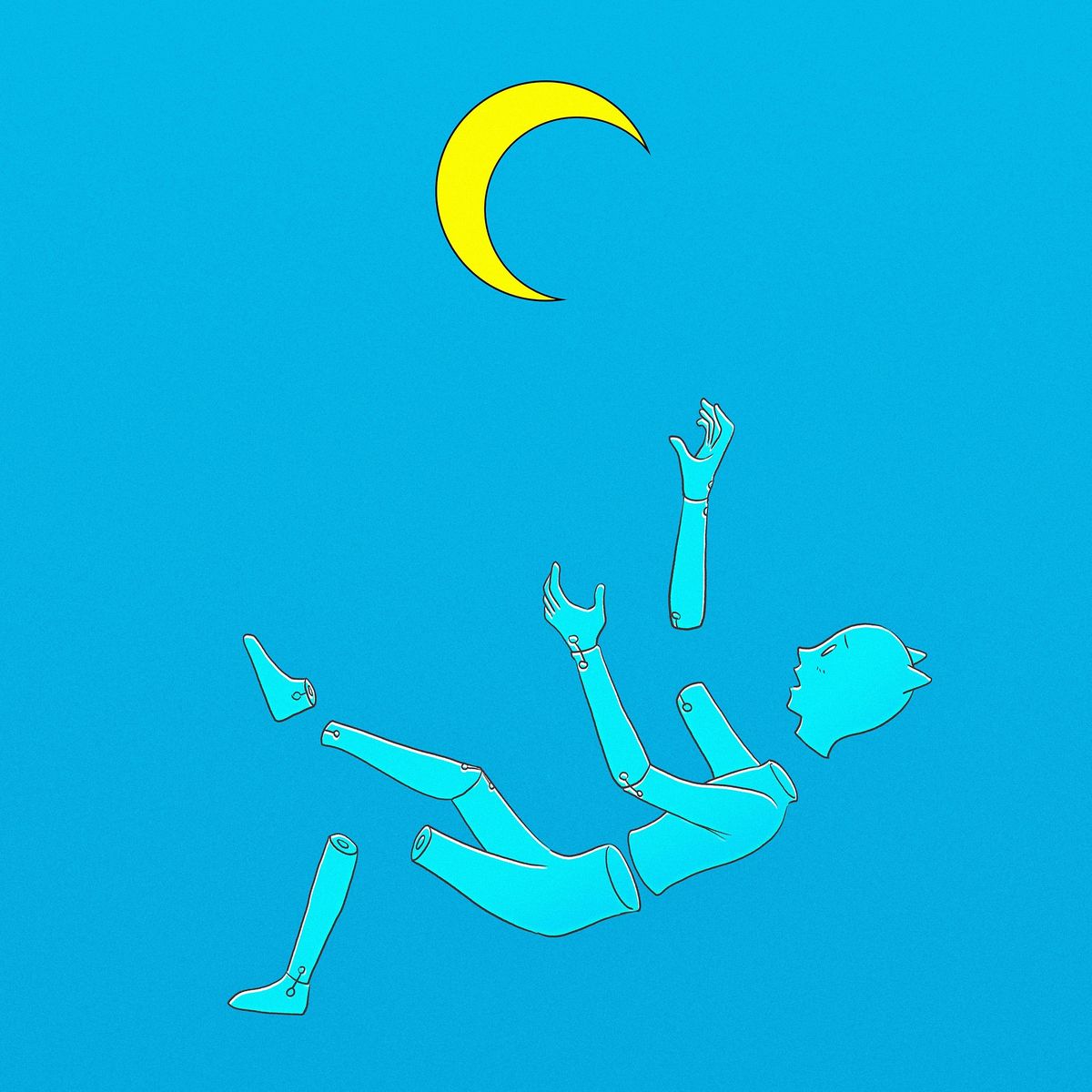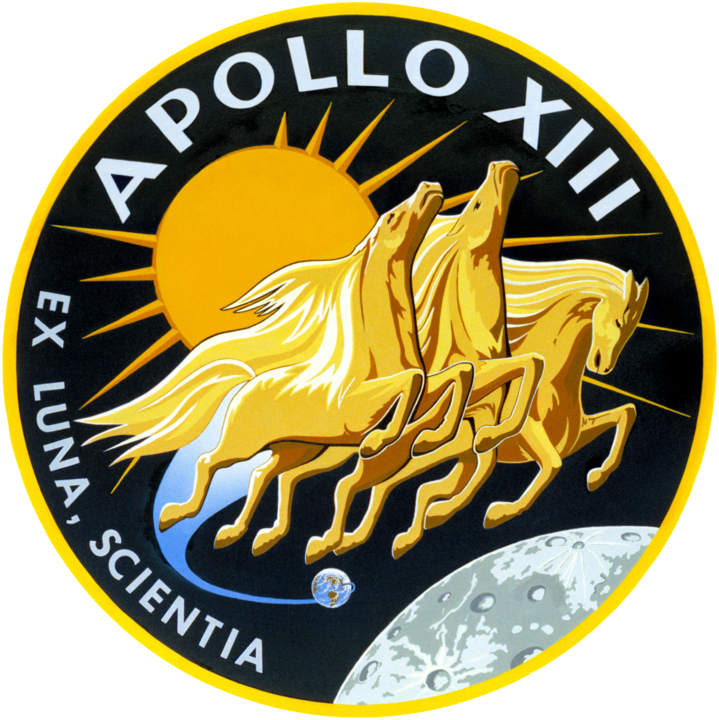Houston, We’ve Had Emotions
Emotions aren't wrong or bad, Gus. They're just information our brain gives us to help us understand what's going on all around us.

Image by cdd20 from Pixabay
13 May 2020
Dear Gus,
Last night, we watched Apollo 13. Your reaction caught us totally by surprise. Maybe it shouldn’t have. We had been talking about wanting to watch it for weeks, but you had expressed some nervousness, as you often do with movies you haven’t seen yet.
I thought your nervousness was a bit misplaced. After all, you knew exactly how the story went. You and I have watched When We Left Earth and other documentaries about the Apollo missions. You knew that Jim Lovell and his crew were going to face the disappointment of not landing on the moon. You knew that the NASA ground crew was going to struggle to get them safely back to Earth. You knew also that those three astronauts would make it back, though none of them would ever return to space .
Moreover, even when you express nervousness around watching new movies, you almost always love them. For example, we watched Jurassic Park recently. You were scared to watch it right up until the first scene began: the scene where they’re moving the velociraptor and that worker gets pulled into the raptor’s container. When I was 13 years old, I remember sitting in the movie theater watching that scene and being horrified. You watched it and turned to me and Mom and said: “That wasn’t so scary.”
Now, you consider Jurassic Park to be one of your top five favorite movies! You even watched it on your own this afternoon when the weather turned a little rainy.
It’s been this way with other “intense” movies that you’ve watched. The Star Wars films come to mind. You were even scared to watch Toy Story because you thought Sid and his creations looked super-creepy. (They do, by the way! Someone needs to check in with Sid.) But now you love those movies.
But Apollo 13 got to you.
I was excited for you to see it because it’s a great story, and I thought it would be fun to see a dramatization of one of these astronaut stories that you know and love, to see a bunch of people come together, dig into their ingenuity, and work to save three guys trapped in a tin can flying at the speed of a bullet some 200,000 miles from home.
Mom was excited for you to see it because Tom Hanks is probably the most beloved actor of our time. Plus, he appears to be a genuinely kind, generous human being (and a typewriter afficionado!). Moreover, you’ve been making films lately with the iPad, learning to storyboard, shoot, cut, and even create music for your stories. If nothing else, Apollo 13 is a great film to watch to see the way that Ron Howard and his crew put these three actors on a a tiny little set and told a story that mostly had them just waiting around. Mom thought you’d love the moviemaking magic involved here as you’ve loved watching the t-rex come to life in the featurettes that accompany Jurassic Park.
Apparently, Ron Howard and the rest of the film crew did a great job, because, as I said, this movie really hit you. It hit you hard!
Before all of this, we had had a great day, riding bikes, playing music, laughing a lot. We came home from a bike ride through our favorite part of the neighborhood, cleaned ourselves up, popped some popcorn, and started the movie. Occasionally, you’d ask us to pause it to make sure that you understood what was going on.
“Why is Ken Mattingly in the simulator?”
Mom and I would explain: “The batteries in the spacecraft only have so much power. Mattingly has to figure out a way for the Apollo 13 crew to power up the necessary systems in the command module while conserving enough power for the batteries to last through the rest of the mission.”
“Why is it so cold in there?”
“Same reason. They can’t run the heater in the lunar module because they don’t have enough battery power.”
“What happens again if the carbon dioxide gets above 15 on that meter?”
“Then the astronauts won’t have enough oxygen in their brains. They won’t be able to see and concentrate. Eventually, they might not be able to stay awake. So, they’ve got to figure out a way to fit that square peg into the round hole.”
You focused on this movie in a way that I hadn’t really seen before. You didn’t get antsy. You didn’t get up and walk around. Aside from a few sit-ups during the first 15 or 20 minutes, you were rooted to the couch, squeezed up tightly against Mom, munching popcorn, and watching Jim Lovell, Fred Haise, and Jack Swigert trying to steer the (appropriately named) Odyssey back home.
To do that, the astronauts power down the Odyssey and go into the Lunar Excursion Module (LEM) which they called Aquarius. They spend the bulk of their return voyage in Aquarius, using its systems to keep them alive and to correct their trajectory so that they can return home. The LEM was only designed to support two people for a few days, but they’ve got to squeeze all three of them in there and keep them alive. Later in the film, as the astronauts prepare to re-enter the Earth’s atmosphere, they have to jettison the LEM.
That’s when your emotions got you.
The astronaut’s undock the LEM and watch it float away. Fred Haise (played by the late Bill Paxton) watches the Aquarius float away and he says, “She sure was a good ship.” Jack Swigert (played by Kevin Bacon) agrees, “Farewell, Aquarius,” he says, “And we thank you.”
The LEM, the lifeboat that the astronauts lived in for several days, floats away and we never see it again.
You were a mess. Somehow, over the course of the movie you’d grown rather attached to the Aquarius. It had become a character for you just as important as any of the other characters in the movie: the astronauts, Jim Lovell’s family, Gene Kranz and his Mission Control crew, and the Lunar Excursion Module known as Aquarius. Your emotions were tied to their fate.
Even though the astronauts made it home, even though we got to see Lovell’s family and all the folks over at Mission Control celebrate, your emotions were still tightly bound up with Aquarius as it floated out into space, cold and alone after having saved the crew’s life.
Minutes after the movie ended, you were in your room, on your bed, telling me that you felt “dumb” for being “so emotional about a stupid spacecraft.”
But I don’t think it’s dumb at all. I have a feeling that if you could talk to Lovell or Swigert or Haise, they would probably tell you how grateful they were for Aquarius, that she was more than “a stupid spacecraft.” I think if you could talk to Ron Howard and Tom Hanks and the rest of the Apollo 13 film crew, they’d probably tell you that they hoped you would feel some attachment to the little lunar lander. It did its job admirably; it saved three human beings from a terrible fate.
I can understand why you feel “dumb” or “embarrassed.” Strong emotions often make us uncomfortable. That discomfort, though, is good. As I listened to you talk about how you felt, it reminded me of the good heart that you have. Mom and I have always hoped that you would be a caring and kind person, the sort of person who would go out of his way to take care of his friends and family.
If you’re able to manifest so much love for "a stupid spacecraft" in a movie, then I’m pretty sure you’re well on your way to becoming a person who will make the people around him feel loved and cared for. At the end of your 80 or 90 years here, if you've done that, if you've made a positive impact on those around you, then you've lived a good life.
I know you didn’t like the way the movie made you feel. I know you didn't like how it tugged at you and made you uncomfortable. Emotions aren't wrong or bad, Gus. They're just information our brain gives us to help us understand what's going on all around us. Your emotions last night may be telling you that you have a great capacity for caring and compassion and kindness. That's so wonderful! It humbles me, really.
Your emotional response may have made you uncomfortable or embarrassed, but it warmed my heart to know how much you love. On a day filled with laughter and fun and the joyous celebration of a job well done, my highlight was laying next to you in your bed as you sorted through all of this, with tears and frustration as you tried to put it all into words.
Sometimes, when I stop and pay attention to what’s happening and how you’re growing up, I realize that it really is an honor to be Gus’s dad.
Thanks, kid.
Love,
Dad.
